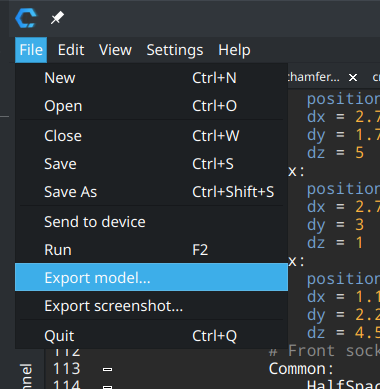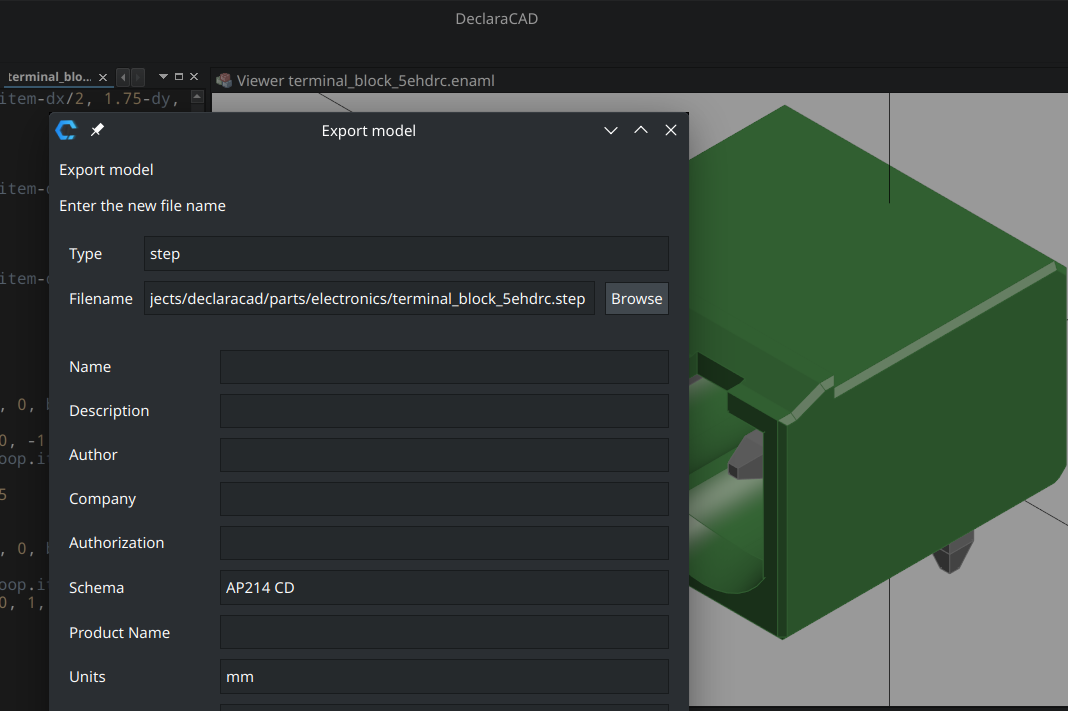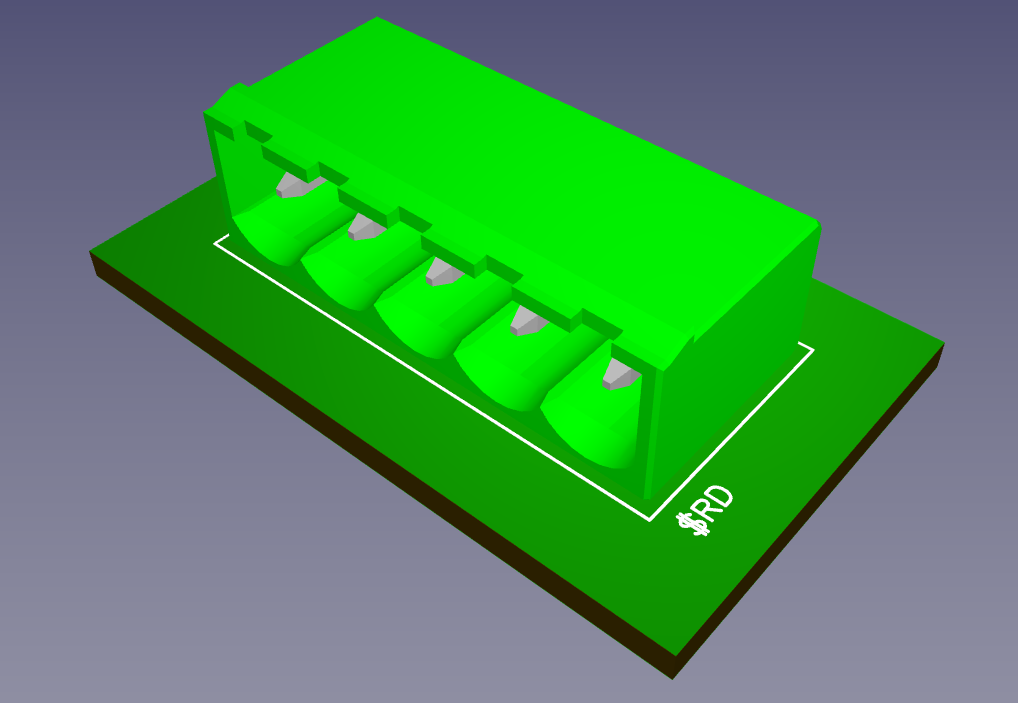DeclaraCAD can currently export models as igs, step, stp, svg, and vrml. Models can be exported either via the Export node or by using the UI.
Using the UI
Use File --> Export model.. from the menu.

Select the type and set choose a filename. Additional options can be set based on the export type. Then click Export.

Export node
You can now also export models directly from the model code using the Export node. Either set the shapes attribute or embed the nodes you want to export, set a filename, and specify any options to pass to the exporter as a dictionary.
Note: The filename must be set and have an known extension to tell it which exporter to use.
For example, the following will generate models for all terminal blocks with 2 to 11 pins and export them in the step format.
enamldef Assembly(Part):
Axis:
pass
Looper:
iterable = range(2, 12)
Export:
filename = f"5EHDRC-{loop.item:02}P.step"
options = {
"name": filename,
"author": "Author",
"company": "My Co"
}
TerminalBlock: terminal_block:
n = loop.item

CLI
There is also a command line interface for exporting. Simply run
declaracad export -m <model.enaml> -o <output.step>
Note: Export options can be provided by passing a json encoded dictionary to the
--optionsargument. For example--options '{"name": "My Name"}'
